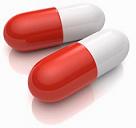Bioequivalent
FDA certification no shield to suit against generic drug makers
 Generic drug manufacturers are not insulated from lawsuits by an FDA approval process that certifies such drugs as the "bioequivalent" of their brand-name predecessors, a federal judge has ruled.
Generic drug manufacturers are not insulated from lawsuits by an FDA approval process that certifies such drugs as the "bioequivalent" of their brand-name predecessors, a federal judge has ruled.
In a 29-page decision in In re Budeprion XL Marketing & Sales Litigation, U.S. District Judge Berle M. Schiller refused to dismiss a suit brought by consumers who were previously taking Wellbutrin, a brand-name antidepressant drug, and claim they experienced side effects upon switching to generic buproprion.
The suit alleges that two manufacturers -- Teva Pharmaceuticals and Impax Laboratories -- became aware of the problem, but failed to warn the public about differences that affected the release rate of the active ingredient.
Schiller applied the U.S. Supreme Court's recent decision in Wyeth v. Levine and concluded that generic drug manufacturers also have a continuing duty to issue warnings about any new hazards that arise after approval.
"A generic drug manufacturer is not absolved of liability because the FDA has approved its generic product," Schiller wrote.
The Hatch-Waxman Act, Schiller said, "allows generic drug makers to expeditiously get their products to market -- it does not allow generic drug makers to wash their hands of any responsibility for monitoring the safety and efficacy of their drugs once sold."
The ruling is a victory for a team of plaintiffs lawyers from 14 firms led by Richard M. Golomb, Ruben Honik and Kenneth Grunfeld of Golomb & Honik in Philadelphia, and Allan Kanner, Conlee S. Whiteley and M. Ryan Casey of Kanner & Whiteley in New Orleans.
Lawyers for Teva and Impax argued that the suit should be dismissed because such claims are pre-empted by the FDA's determination that the generic products are "as safe and effective" as the brand-name drugs they imitate.
Wyeth rule is broad
Schiller disagreed, saying the holding in Wyeth v. Levine was broad and recognized the complementary role that tort suits play in policing drug product safety.
"State law causes of action do not frustrate congressional intent with respect to the regulation of generic drugs," Schiller wrote. "To the contrary, such litigation serves a vital role in furthering the goal of ensuring that only safe drugs reach the consumer."
According to court papers, the generic drug buproprion was the fourth-most prescribed antidepressant in the United States in 2007, with more than 20 million retail prescriptions written annually.
In 2003, GlaxoSmithKline released Wellbutrin XL, an extended-release form of the drug that could be taken just once a day. It used a membrane-release technology, meaning that the drug was not released through a dissolving pill, but seeped at a controlled rate through a membrane that passed through the entire body intact.
Since the membrane technology was patented, generic manufacturers who wanted to release a version of Wellbutrin XL were forced to devise their own methods of delayed release.
Watson Pharmaceuticals and Anchen Pharmaceuticals developed a similar membrane technology, but Impax and Teva used a matrix technology that later proved to be different.
The Teva and Impax versions achieve "peak concentrations" in two hours, versus five hours for Wellbutrin XL and the generic versions produced by Anchen and Watson.
For patients who switched, the suit says, the faster release made the drug less effective in combating depression.
Wave of complaints
But despite receiving a wave of complaints from patients, the suit alleges, neither Impax nor Teva took steps to warn doctors or patients of the differences between the generic and the brand name drugs.
Lawyers for Impax and Teva filed a joint brief seeking dismissal of the suit and arguing that the Levine decision should not apply.
But Schiller concluded that Levine was the controlling law that mandated denial of the motion to dismiss.
"Levine teaches that the ultimate responsibility rests with the drug maker, not the FDA, to either adequately inform the public or remove the drug from the market," Schiller wrote. "Defendants have offered no compelling reason why Congress would have given generic drug makers favored status."
The defense team argued that, no matter how the plaintiffs framed their argument, they cannot recover without contradicting the FDA's bioequivalence finding and proving that the products are not as safe or effective as the name brand product.
But Schiller found that the defense logic could easily be taken to an absurd extreme that would effectively bar all lawsuits over drugs.
"Defendants cannot argue that the FDA has already spoken on plaintiffs' claims. The FDA has not rejected additional warnings here because no such strengthened warnings have been proposed," Schiller wrote.
In every case involving a prescription drug, whether brand drug or generic, Schiller found that the FDA would have at some point approved the drug as safe and effective and the label as adequate.
"Defendants would turn that approval into a lock that would forever shut the courthouse door and would remove any incentive for generic drug makers to monitor the safety of their medications and update their labels accordingly," Schiller wrote.
"Such a result runs counter to congressional purpose and finds no support in the law," Schiller wrote.
Impax was represented by attorneys Asim Bhansali and Paula L. Blizzard of Keker & Van Nest in San Francisco. Impax spokesman Mark Donohue said the company stands by the drug as a safe and effective product and will continue to defend it in the litigation.
Teva was represented by attorneys C. Robert Boldt and R.C. Harlan of the Los Angeles office of Kirkland & Ellis. Boldt did not immediately return a call seeking comment.
(Published by Law.com – May 28, 2010)